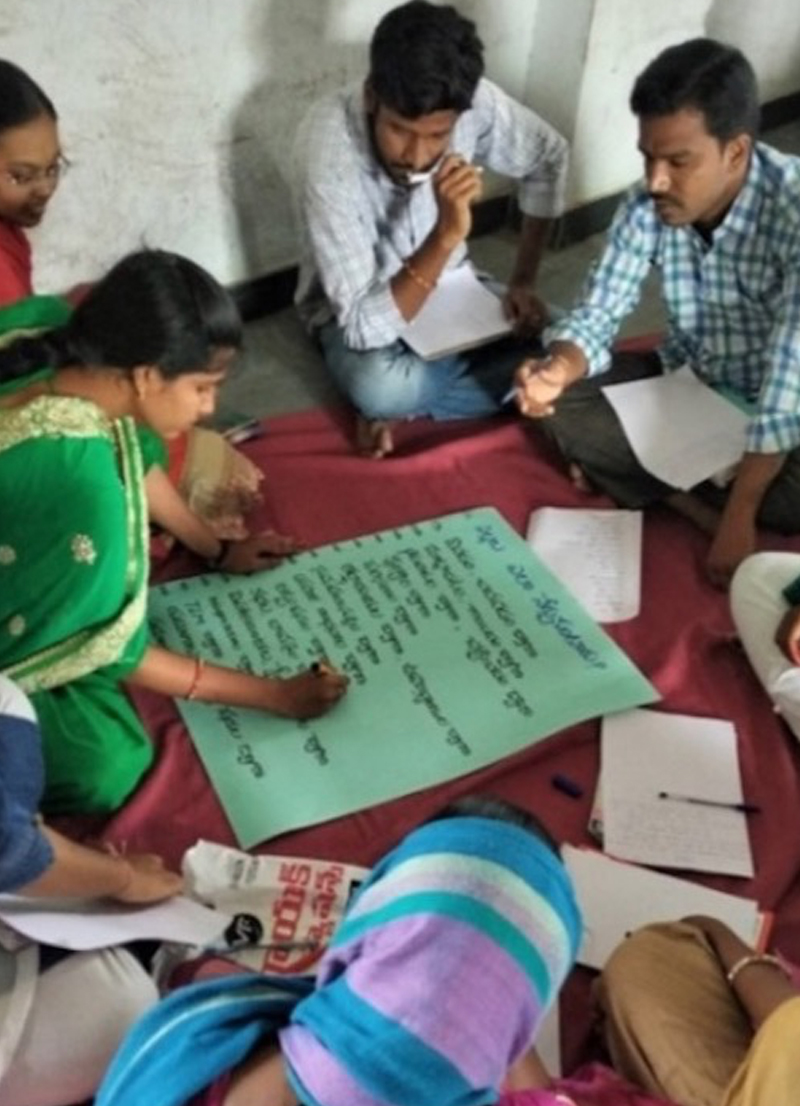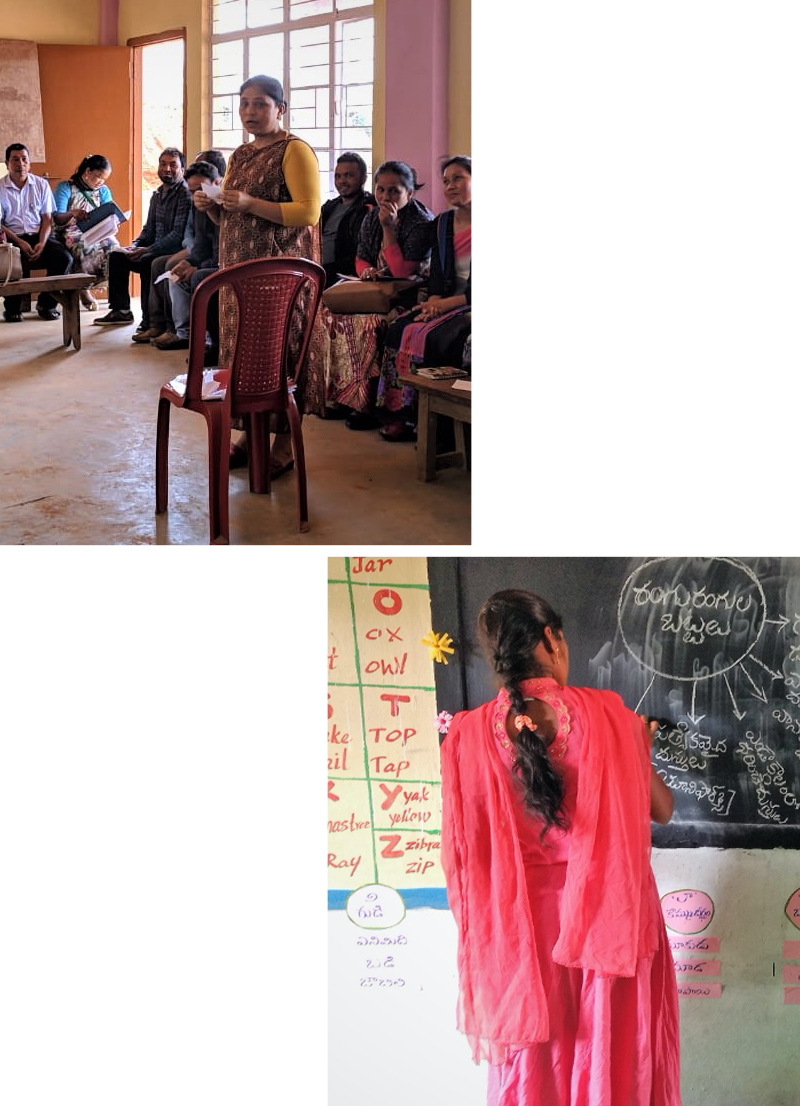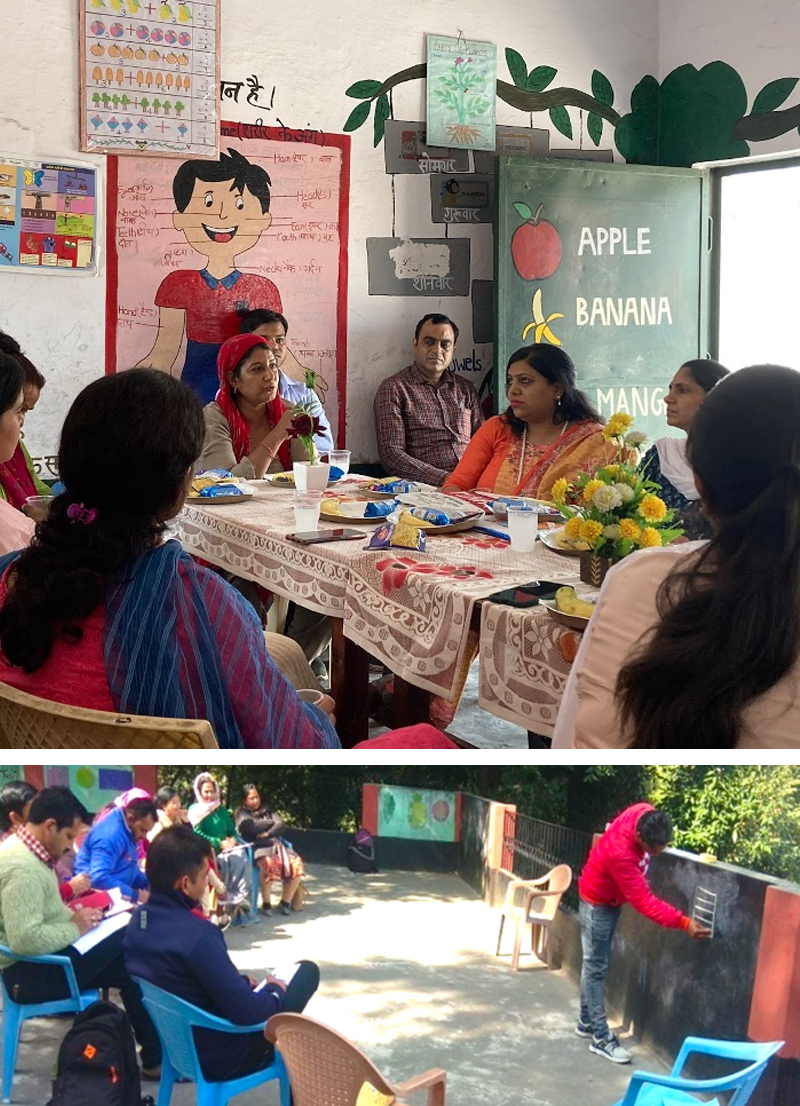IEC believes that the goal of education should be to strengthen the innate abilities of children to learn. The teacher then becomes an architect who designs learning environments that provide children with opportunities to develop their varied abilities.
The focus of Quality Learning Initiative is towards developing Peer Led Teacher Professional Learning Communities. These are initiated through Cluster level academic meetings conducted every month.
Through these monthly meetings, opportunities are created for teachers to reflect on how learning happens. Teachers gain from each other’s experiences and from collective brainstorming about issues with which they have first-hand familiarity.




